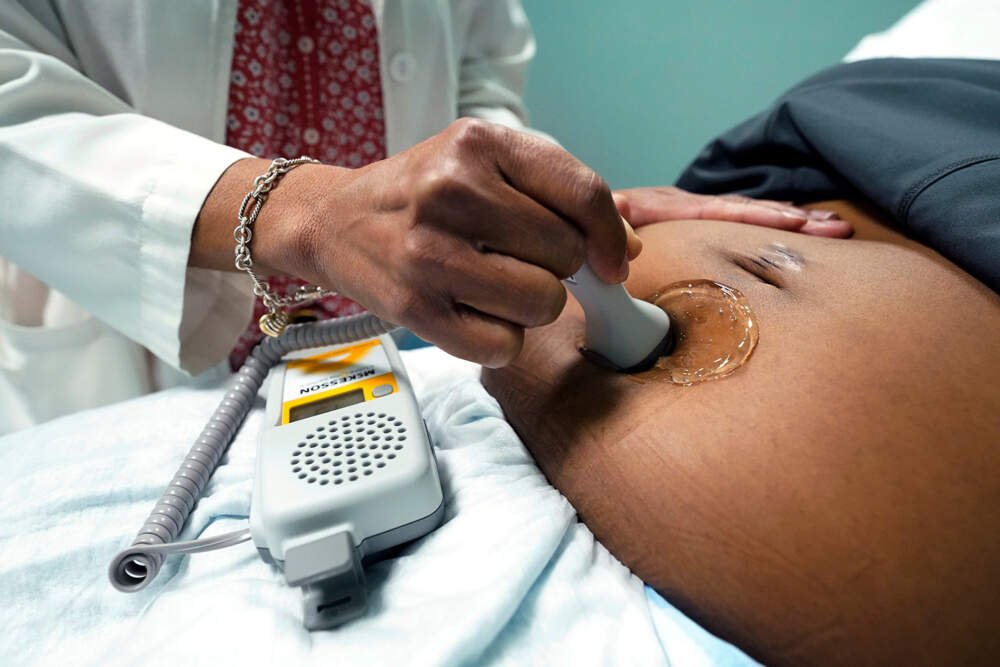
State officials are tracking an alarming increase in health complications related to pregnancy and birth in Massachusetts, especially for Black patients.
The rate of these unexpected, life-threatening complications nearly doubled in a decade, from 2011 to 2020, according to a new report from the Massachusetts Department of Public Health.
The study identified 4,092 incidents of severe complications over that decade.
The frequency of these serious health problems increased about 9% per year, from about 52 per 10,000 deliveries in 2011 to about 100 per 10,000 deliveries in 2020.
But for Black people, the rate of complications grew even faster. By 2020, the study found Black patients experienced severe complications two and half times more often than white patients — a disparity that grew more stark over time.
The research adds to the growing body of evidence that the maternal health crisis in Massachusetts and across the country has worsened, and it is sobering news, especially for a state known as a destination for medical care.
“This is an extreme example of systemic structural racism that results in a lack of trust with health care and can result in these severe events,” Dr. Robbie Goldstein, commissioner of public health, told reporters.
The report — the state’s first on this topic — analyzed the rates of serious complications such as heart attacks, kidney failure, sepsis and eclampsia, a dangerous condition of high blood pressure. It also counted incidents that required a birthing person to be placed on a ventilator or have their uterus removed.
Dr. Fifi Diop, the department’s director of maternal child health research, said these problems largely are preventable.
“Traditionally, we blamed Black patients for their complications, or even for dying,” she said. “The argument is that they come to pregnancy sicker — overweight or obese or older.”
“But the truth is that’s not an individual problem, it’s a societal and structural problem whether or not people have access to healthy food, clean water, insurance coverage and access to health care. These are policies and structural decisions.”
The state report analyzed data from 678,382 deliveries, including live births and fetal deaths. In addition to the worse outcomes for Black patients, it highlighted the higher rates of complications for people with disabilities.
“It is devastating to see that the inequities persist and continue to widen,” said Dr. Allison Bryant, associate chief health equity officer at Mass General Brigham.
Bryant, a maternal-fetal medicine specialist, co-authored a recent study in the Journal of the American Medical Association that found pregnancy-related deaths nationwide more than doubled between 1999 and 2009.
She said people who become pregnant have gotten older and sicker over time, which may be contributing to higher rates of complications and deaths. But policies also need to change so that people have better access to care, she said.
“This is a problem that is going to take some time to fix,” she said.
State officials said they’re working on several initiatives to improve maternal health, including expanding the use of doulas and increasing remote blood pressure monitoring for pregnant and postpartum patients.
They also funded training for 500 health care providers on strategies for providing respectful care and dismantling racism.
Source: wbur.org
